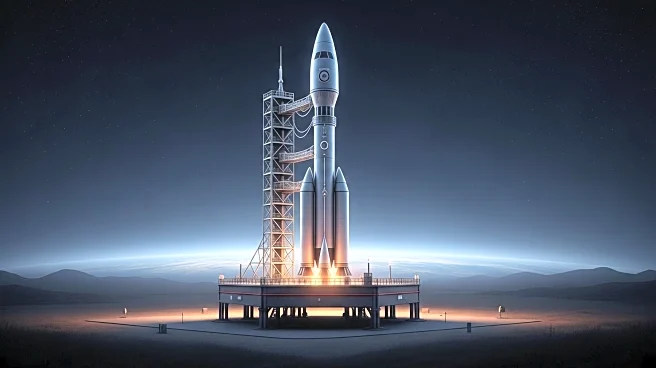What is the story about?
What's Happening?
The U.S. Space Force's Space Systems Command has awarded the majority of its 2026 national security launch contracts to SpaceX. Out of seven contracts under the National Security Space Launch (NSSL) Phase 3 Lane 2 program, SpaceX secured five missions valued at $714 million. United Launch Alliance (ULA) received the remaining two contracts worth $428 million. The missions include launching the twelfth Wideband Global Satcom communications satellite and a GPS satellite, as well as spy satellites for the National Reconnaissance Office. This decision follows a similar pattern from earlier in the year when SpaceX was awarded the majority of contracts. Blue Origin, another competitor, did not receive any contracts this time as its New Glenn rocket is still awaiting certification for national security launches.
Why It's Important?
The awarding of these contracts underscores SpaceX's dominant position in the U.S. national security launch market. The company's ability to secure the majority of these high-value contracts highlights its reliability and cost-effectiveness in delivering critical payloads to orbit. This development is significant for the U.S. government as it ensures continued access to space for national security purposes. The contracts also reflect the strategic importance of maintaining a robust and secure satellite network for communications and reconnaissance. For ULA, securing two contracts helps maintain its presence in the market, while Blue Origin's absence from this round of contracts indicates the challenges new entrants face in achieving certification and competing with established players.
What's Next?
Looking ahead, Space Systems Command has projected a more balanced distribution of contracts through 2029, suggesting that while SpaceX currently holds a significant share, other providers like ULA and potentially Blue Origin could see increased opportunities. Blue Origin is expected to become eligible for contracts starting in FY27, contingent on the certification of its New Glenn rocket. This could introduce more competition and potentially drive innovation and cost reductions in the launch services market. The ongoing certification process for Blue Origin will be crucial in determining its future role in national security launches.
















